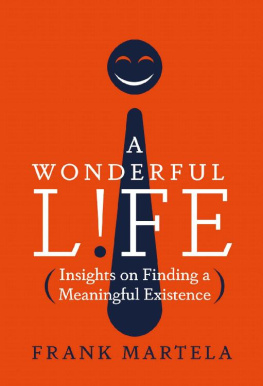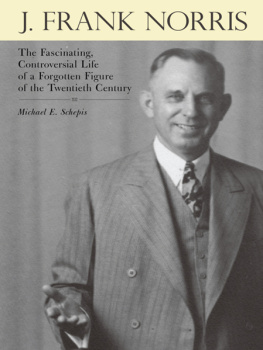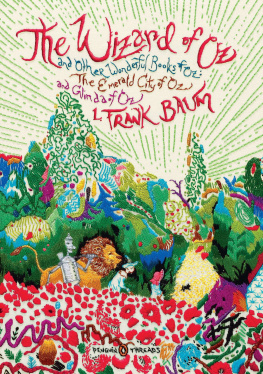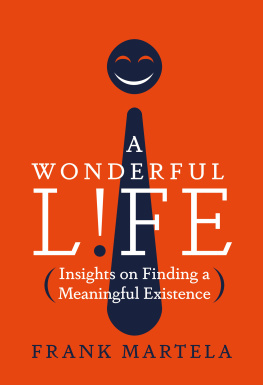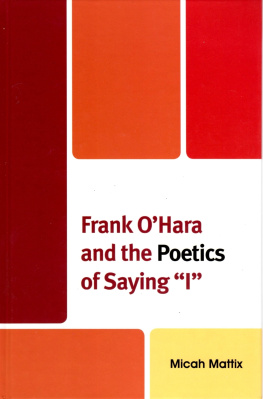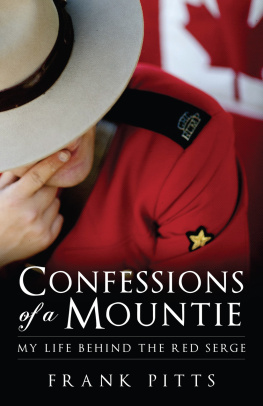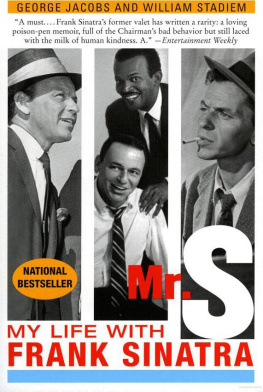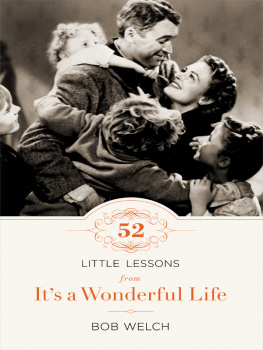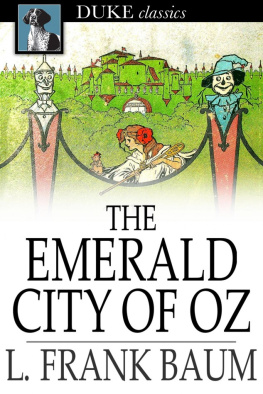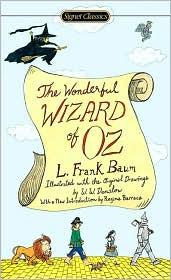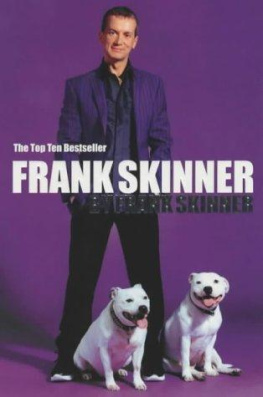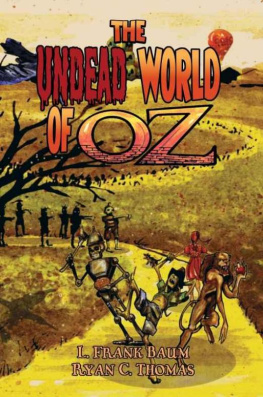Frank Martela Ph.D. - A Wonderful Life
Here you can read online Frank Martela Ph.D. - A Wonderful Life full text of the book (entire story) in english for free. Download pdf and epub, get meaning, cover and reviews about this ebook. year: 2020, publisher: Harper Design, genre: Religion. Description of the work, (preface) as well as reviews are available. Best literature library LitArk.com created for fans of good reading and offers a wide selection of genres:
Romance novel
Science fiction
Adventure
Detective
Science
History
Home and family
Prose
Art
Politics
Computer
Non-fiction
Religion
Business
Children
Humor
Choose a favorite category and find really read worthwhile books. Enjoy immersion in the world of imagination, feel the emotions of the characters or learn something new for yourself, make an fascinating discovery.
- Book:A Wonderful Life
- Author:
- Publisher:Harper Design
- Genre:
- Year:2020
- Rating:5 / 5
- Favourites:Add to favourites
- Your mark:
- 100
- 1
- 2
- 3
- 4
- 5
A Wonderful Life: summary, description and annotation
We offer to read an annotation, description, summary or preface (depends on what the author of the book "A Wonderful Life" wrote himself). If you haven't found the necessary information about the book — write in the comments, we will try to find it.
A Wonderful Life — read online for free the complete book (whole text) full work
Below is the text of the book, divided by pages. System saving the place of the last page read, allows you to conveniently read the book "A Wonderful Life" online for free, without having to search again every time where you left off. Put a bookmark, and you can go to the page where you finished reading at any time.
Font size:
Interval:
Bookmark:
Contents
How did I get into the world?
How did I get into the world? Why was I not asked about it, why was I not informed of the rules and regulations but just thrust into the ranks... ? How did I get involved in this big enterprise called actuality? Why should I be involved? Isnt it a matter of choice? And if I am compelled to be involved, where is the managerI have something to say about this. Is there no manager? To whom shall I make my complaint?
SREN KIERKEGAARD, Repetition, 1843
W here were you when the meaninglessness of life hit you? Was it over your third microwaved dinner of the week while pondering the flavor and health benefits of ketchup? What about when you hit the send button at 2 A.M. having completed an urgent work task only to realize that the world, most likely, wont be an inch improved in light of your accomplishment? Maybe a life-changing tragedy made you realize that you havent put in the effort to contemplate what you really want out of life. Or perhaps you simply woke up one morning, stared at yourself in the bathroom mirror, and wondered if there was anything more to this crazy little thing called life.
Dont worryyoure not alone. In this book, youll be in the company of many great thinkers and philosophers who came face-to- face with the insignificance of existence and ended up on the other side with a life-affirming, revitalized sense of meaningfulness.
As humans, we yearn for our lives to matter, be valuable, and have meaning. Were hardwired to seek meaning, as professor of psychology Roy Baumeister has argued.
The trouble is that Western culture has become increasingly incapable of answering the inevitable why question in any real or satisfying way. Throughout history, most civilizations have answered the yearning for meaning by providing a stable cultural framework that includes answers to lifes biggest questions. When our ancestors asked, How should I live my life?, they turned to their culturesocietys staid-and-stable customs, beliefs, and institutionsto provide guidance. Todays cultural era, however, has destabilized the old foundations of meaning. While modern science has vastly improved the material conditions of life, its taken the steam out of old-world value systems and explanations and failed to provide a new solid foundation for human values and meaning. As the expert on the history of morality, Scottish philosopher Alasdair MacIntyre, argues, modern Western values are built on the fragments of an older worldview that no longer makes sense.
In the idealistic modern worldview, you are free to source your own sense of meaning, and blaze your own unique path, based on your self-selected values. Unfortunately instead of feeling liberated, you just feel empty. You work harder, smarter, and more effectively than previous generations, but youre increasingly at a loss in explaining why you push so hard. To what end does your tedious labor serve? Youve willingly fallen into the Busy Trap that author Tim Kreiner so eloquently describes: Busyness serves as a kind of existential reassurance, a hedge against emptiness; obviously your life cannot possibly be silly or trivial or meaningless if you are so busy, completely booked, in demand every hour of the day.
To live a self-chosen life, to steer your own ship, you need to have a clear idea as to what direction you want to take. For that, you need some core values to help navigate lifes challenges. And for that, you need to take some time to contemplate and question your life choices and face any existential doubt that may linger beneath the surface of your existence. Theres a long and storied history of thinkersfrom Leo Tolstoy and Thomas Carlyle to Simone de Beauvoir and Sren Kierkegaard to Alan W. Wattswho found that its only by facing the absurdity of life and embracing the insignificance of existence that you can liberate yourself to find a more solid sense of meaning in your life. This book offers a new way to think about meaningfulness that speaks to our common humanity so that, no matter where you come from culturally, religiously, or otherwise, you will be guided toward a more fulfilling, meaningful life.
I want to help you live a more meaningful existence. After a decade of research into the philosophy, psychology, and history of the meaning of life, Ive realized that identifying what makes life meaningful is easier than you think. In fact, theres probably an abundance of meaningfulness in your life, if you open yourself to seeing it and feeling it. The reason why the meaning of life often feels like an impossible and agonizing riddle is that we, as a culture, have continued to use old models to think about the question that no longer makes sense. By changing the way you think, youll come to see that the answers you seek can be sourced from your everyday life. This book explains why humans seek meaning in the first place, examines the historical mistake that has given rise to modern existential anxiety, and offers you easily applicable paths that lead towards a more meaningful existence. Some of the insights might seem strange, others may be obvious, and still others you may already fully embrace. Together, however, they aim to offer a solid and stable foundation for you to build a fulfilling, life-affirming, and more meaningful existence.
You Didnt Choose to Be Born.
You didnt choose to be born. No one asked your permission to be involved. No one provided you with an instruction manual and yet here you are, thrown into the world in which you need to act, to make something meaningful out of the limited time of existence afforded to you. And youd better figure it out soon, before its too late. As Edward Nortons character, the narrator, says in the movie Fight Club, This is your life, and its ending one minute at a time.
It happens that the stage sets collapse. Rising, streetcar, four hours in the office or the factory, meal, sleep, and Monday Tuesday Wednesday Thursday Friday and Saturday according to the same rhythmthis path is easily followed most of the time. But then one day the why arises and everything begins in that weariness tinged with amazement.
ALBERT CAMUS, Myth of Sisyphus, 1955
L ife is absurd, and thats okay. No one has written about this more eloquently than Albert Camus in The Myth of Sisyphus. The book, a classic in existential literature, derives its title from the legend of Sisyphus, the ancient Greek character who, having defied the gods, is meted an eternal punishment: hes forever doomed to push a boulder up a mountain only to watch it roll down again, and then push it back up, ad infinitum. Camus considered Sisyphus to be a hero of the absurd, a kind of Phil Connors of Greek mythology. Phil Connors is the fictional television weatherman in Punxsutawney, Pennsylvania, from the film Groundhog Day, who tried everything, including suicide, to break up the monotony of his mundane existence. Without fail, however, Connors wakes to the same radio song in the same town, destined to follow the same meaningless trajectory of his life. He says, I was in the Virgin Islands once. I met a girl. We ate lobster, drank pia coladas. At sunset we made love like sea otters. That was a pretty good day. Why couldnt I get that day over and over again? Who among us cant empathize with this sentiment? Even on a good day, our lives often feel stuck on an endless loop.
Of course, as the author of your own life, youre highly invested in it. Yet occasionally you might awaken to the possibility that from the point of view of the Universe, your life is tiny, accidental, and contains no particular value. The discrepancy between feeling that your life is highly valuable with the knowledge that you may not be able to justify that feeling is the notion of the absurd. Philosopher Todd May calls it the confrontation of our need for meaning with the unwillingness of the Universe to yield it to us. Its the quandary that arises when youre unable to articulate why your actions are worth doing or why your life is worth living. This happens when you lose touch with a frameworkpersonal, familial, societalthat could tell you what is genuinely valuable.
Next pageFont size:
Interval:
Bookmark:
Similar books «A Wonderful Life»
Look at similar books to A Wonderful Life. We have selected literature similar in name and meaning in the hope of providing readers with more options to find new, interesting, not yet read works.
Discussion, reviews of the book A Wonderful Life and just readers' own opinions. Leave your comments, write what you think about the work, its meaning or the main characters. Specify what exactly you liked and what you didn't like, and why you think so.

